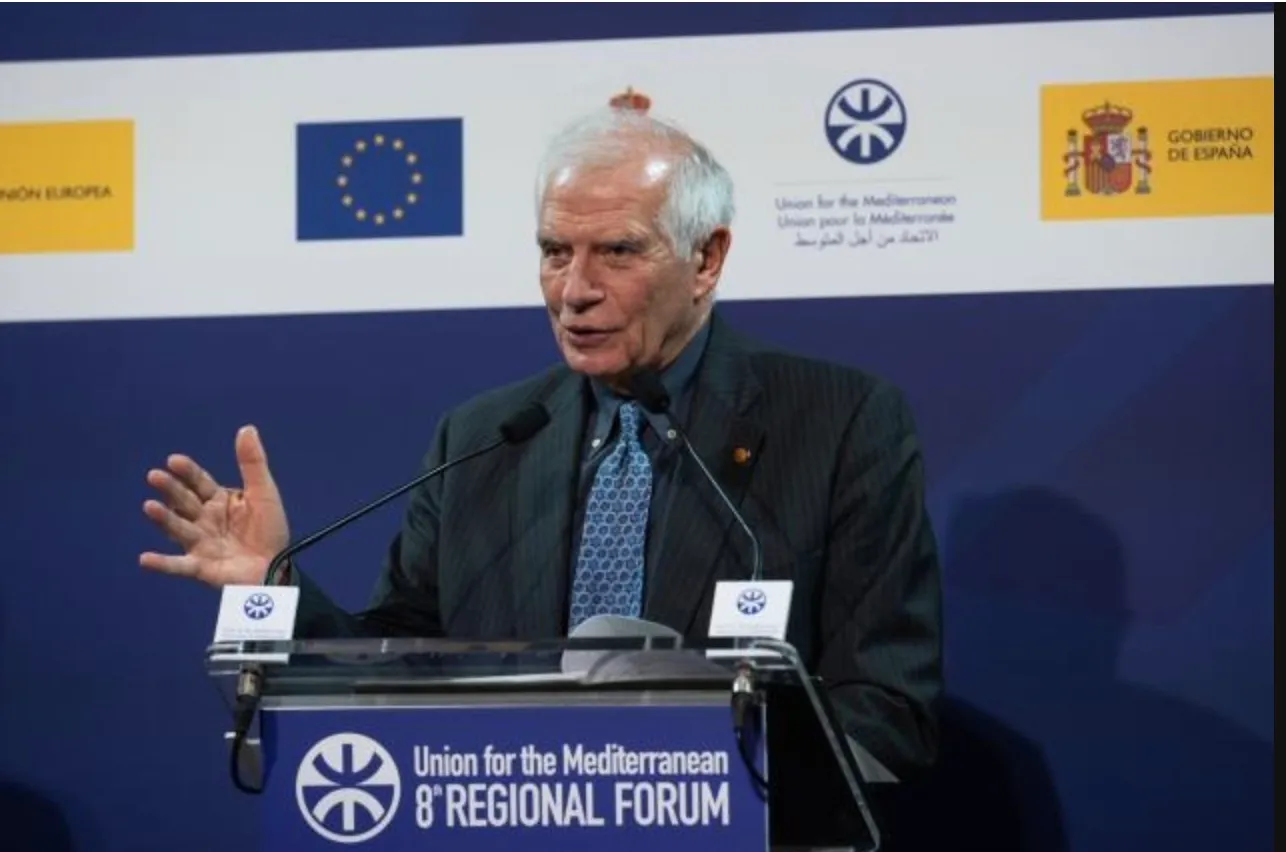The Union for the Mediterranean convened today, bringing together foreign ministers from 42 countries from the European Union and the Mediterranean in Barcelona, at which the main topic will be the Palestinian-Israeli conflict. The meeting was chaired by the EU foreign policy chief and EU Commission vice president Josep Borrell and Jordan’s Foreign Minister Ayman Safadi. It was suggested that the event could have initiated an Israeli-Palestinian dialogue, but the Israeli government refused to attend, claiming it was not consulted on having the conflict be the conference subject.
Jordanian Foreign Minister Safadi told The Associated Press on the eve of the event that he hoped the talks would help “bridge a gap” between Arab and European countries in calling for the current humanitarian pause to become a permanent ceasefire. Only through “ensuring an end to this brutal aggression,” said Safadi, can the work for a two-state solution begin.
Addressing the conference, Egyptian Foreign Minister Sameh Shoukry, who is a member of the ministerial peace delegation of the Arab-Islamic Ministerial Committee, warned that Israel was still planning to displace Palestinians from Gaza. “The displacement of the Palestinians is utterly rejected internationally; yet Israeli measures continue to push for it,” he said, admonishing that those who oppose the forced deportation are not undertaking measures to prevent it. He insisted, “European countries need to play a leading role in recognizing a Palestinian state.” Shoukry emphasized that the expression “Israel’s legitimate right to self-defense” cannot be applied to an occupying force oppressing and isolating a subjugated population. Shoukry called for more international pressure to be brought to bear on Israel. He again warned of “the dangers of managing the conflict rather than seeking a resolution to the Palestinian issue, based on the two-state solution and in accordance with international legitimacy resolutions,” which had been raised earlier by Egypt and the Arab League.
Other members of the foreign ministerial delegation in the Arab-Islamic Ministerial Committee at the conference included Palestinian Foreign Minister Riyad Al-Maliki, Saudi Foreign Minister Prince Faisal bin Farhan Al-Saud, Jordan’s Ayman Safadi, Turkish Foreign Minister Hakan Fidan, and Arab League Secretary-General Ahmed Aboul Gheit.
Borrell stated in his opening remarks: “The pause should be extended to make it sustainable and long-lasting while working for a political solution. … “I think there are some things on which we can agree. The first one is no to the return of Hamas to Gaza, as a political and military force. …
“Secondly, no to the dismembering of the territory of Gaza. No to the re-colonization of Gaza by Israel—thinking that if you increase your security by increasing your territory is an illusion, as the last 50 years have proved. It gives the illusion of security, but not security. And the third no is to the illegal colonization of the West Bank, which is a major source of tension and one of the obstacles to resolving the Israeli-Palestinian conflict.”
According to Reuters, Borrell also claimed that all EU members who attended and almost all attendees had agreed on the need for a two-state solution. Borrell also claimed that the Palestinian Authority is the only “viable solution” to govern Gaza in the future.
Palestinian Foreign Minister Riad al-Malki also said the pause in fighting in Gaza must be extended. “The truce went into effect with 15,000 deaths. If we see the war resume, then the number of deaths will double because the concentration of the population is now twicefold,” al-Malki said. “We have worked so that this truce continues … so that Israel does not continue attacking,” he added.
This message was echoed by Saudi Foreign Minister Prince Faisal bin Farhan, who told reporters after the conference: “We delivered our message, it’s important that we have a ceasefire immediately, that we build on the current truce that is in place.” The Foreign Minister spoke as a representative of the Arab League and the Organisation of Islamic Cooperation.






